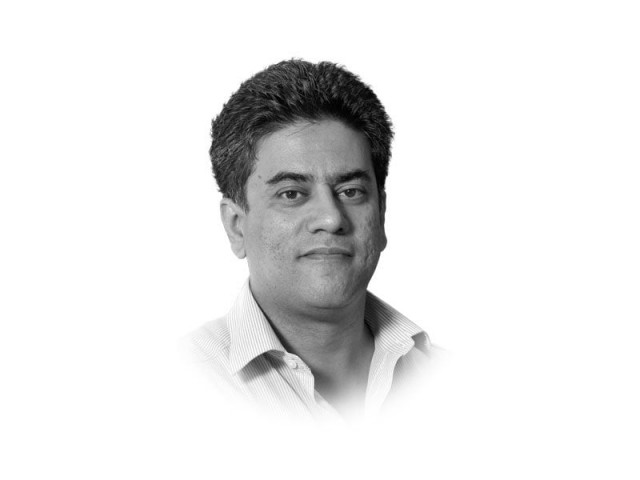Outside the box
The people of Karachi need to be part of their police force and own it. So far, the opposite is the case.

The writer is Editor of The Express Tribune
The stopping is random and is based on the wisdom of the policeman who stands in the middle of the road. He decides who to stop. Possibly in his mind, however, is not the desire to catch criminals. His reasoning may operate on an entirely different tangent.
In most instances, while the bigger cars are able to breeze through, it is the motorcyclists and the people in smaller cars that are invariably asked to stop and then a session starts where the policeman needs to catch you out and demand payment against the perceived crime committed. In some instances, regular policemen haul you up for traffic crimes. I am not sure they can do that.
Historically we see that “Nakabandi” have neither helped curb crime nor check terrorism. The only purpose, say some, is to make the policemen richer on the one hand and the people of Karachi angrier on the other. What gives this practice political undertone is that almost all policemen in Karachi are non-locals and it helps breed the feeling in the city that we are left at the mercy of outsiders. The problem, however, is much more complex.
While cities like Lahore and Islamabad have roadblocks in place, one does not see the bargaining which eventually ensues in Karachi. Nakabandi is just one of the avenues through which the police in Karachi earn their millions.
Policing in Karachi is terribly frustrating. The present police chief, Shahid Hayat, is trying his level best to ensure some semblance of duty and discipline but it is hard to do so under the present circumstances. Not every policeman is a Chaudhry Aslam, and many say that this may well be a blessing for us. At the same time, there are few in the police who are as motivated in fighting crime in a city where the daily death toll from target killings stands at 10 on a good day.
Nowhere in South Asia do you see the crime that is witnessed in Karachi. One of the largest cities in the world, Karachi can best be called the crime capital of the region. We have armed robbery, kidnappings, car-jackings, mobile phone snatching aside from the usual murders and rapes. Then there is terrorism.
We are told that with the recent operation in the city, crime has gone down. People say this is true but there is no way to independently verify this. As it is, the Rangers are not a permanent solution to the problems of Karachi. The people of Karachi need to be part of their police force and own it. So far, the opposite is the case.
The issue of bad policing in Karachi reflects a larger problem in the country. Our bureaucracy is unwilling to give key powers to the elected representatives under one pretext or another. In many ways, the hands of the politicians are either tied or guided. We should be looking for out of the box solutions, instead we are trying the same methods with little or no success.
The solution of the Sindh Chief Minister is to hire more policemen. This adds more untrained and incompetent men to a force that does not need them. The PM wants to add retired army men to Sindh’s police force. While a good idea, they are still outsiders and will not be owned by the people.
Why can we not have a simple system of merit in hiring, and open up vacancies to all residents of the province? This will require political will from the PM. We should do the same in all provinces of Pakistan so that educated men and women, honest and competent, come ahead and fight crime and terror. This practice does not require millions of rupees, only a commitment from the powers that be.
Our interior minister remains in a sulk and everyone wants business to continue as usual. The government continues to delay on all fronts. In the meantime, we fear doom and gloom all round.
Published in The Express Tribune, February 3rd, 2014.
Like Opinion & Editorial on Facebook, follow @ETOpEd on Twitter to receive all updates on all our daily pieces.















COMMENTS
Comments are moderated and generally will be posted if they are on-topic and not abusive.
For more information, please see our Comments FAQ